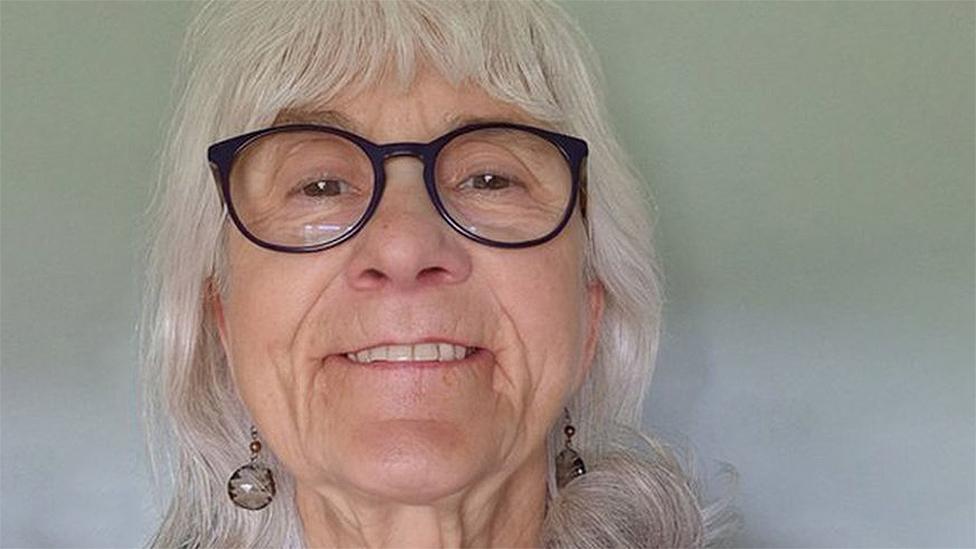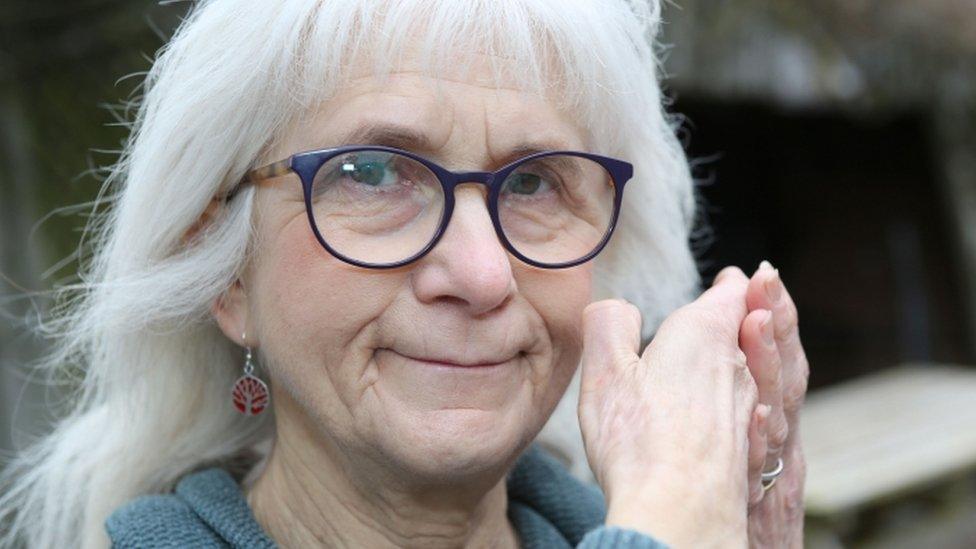Rare genetic mutation allows woman to feel no pain
- Published

Jo Cameron's condition could lead to the development of new treatments
Scientists say they have found out how a rare genetic mutation allows a woman to live her life feeling virtually no pain.
Doctors were first alerted to Jo Cameron's condition after she had a serious operation and she needed no pain relief during her recovery.
Researchers at University College London (UCL) have discovered how the mutation works at molecular level.
They said the study could lead to development of new treatments.
Mrs Cameron, 75, who lives near Loch Ness, has previously told of how she only realises her skin is burning when she smells singed flesh.
She often burns her arms on the oven, but feels no pain to warn her. She never feels anxious or afraid.
Mrs Cameron is thought to be one of a few people in the world with mutations in what is called the FAAH-OUT gene.
UCL scientists first identified Mrs Cameron's mutation in 2019.
'Positive impacts'
Following the latest analysis, scientists said the mutation had the same biological mechanisms that are also thought to allow wounds to heal more rapidly.
The researchers' findings have been published in the journal Brain, external.
Prof James Cox, of UCL Medicine, said: "By understanding precisely what is happening at a molecular level, we can start to understand the biology involved and that opens up possibilities for drug discovery that could one day have far-reaching positive impacts for patients."
The woman who feels no pain
His colleague Dr Andrei Okorokov described the FAAH-OUT gene as "one small corner of a vast continent, which this study has begun to map".
"As well as the molecular basis for painlessness, these explorations have identified molecular pathways affecting wound healing and mood, all influenced by the FAAH-OUT mutation.
"As scientists it is our duty to explore and I think these findings will have important implications for areas of research such as wound healing, depression and more."
Doctors were first alerted to Mrs Cameron's condition when she told doctors following an operation that she did not need painkillers, and her medical history showed she had never been prescribed pain relief.
Her anaesthetist sent her to pain geneticists at UCL and Oxford University.
After tests, they found gene mutations which meant that she did not feel pain like most people.
- Published28 March 2019
